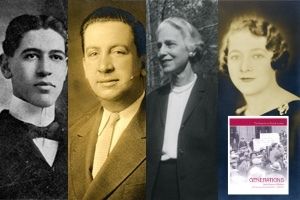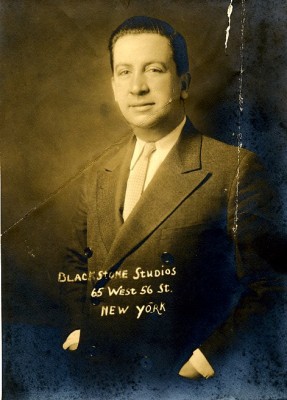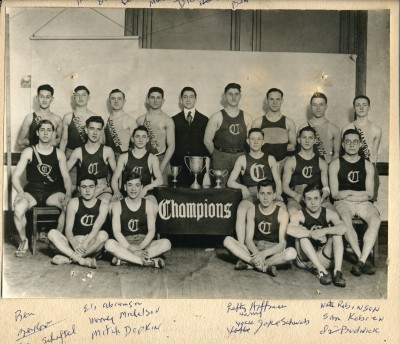Ten in the Twentieth: Baltimore Jews and Social Justice 1930s

Article by Dr. Deborah R. Weiner. Originally published in Generations 2009-2010: 50th Anniversary Double Issue: The Search for Social Justice.
The Baltimore Jewish community has produced many leaders who have worked to make the world a better place. The range of issues they have addressed is impressive: from women’s suffrage to civil rights, labor relations to helping the elderly, refugee resettlement to eliminating poverty, and much more.
This chronology traces the careers of ten Baltimoreans who stood up for social change, with each person’s entry revolving around a turning point—one for each decade of the twentieth century. This is by no means a “Ten Best” list. The people included here are remarkable for what they accomplished, but others, equally remarkable, could have been chosen as well. These profiles should be seen as representative of a larger group of Baltimore Jews who have made major contributions to their communities and to the broader society in myriad ways.
The 1930s: Lee Dopkin
Click here to start from the beginning.
1935: Through the efforts of Lee Dopkin (1895-1968), the Maryland legislature passes the Old Age Pension Law, a model for the Social Security Act that FDR would sign later that year. Chairman of the state’s Old Age Pension Commission, Dopkin helped draft the legislation and campaigned strenuously for it, mounting petition drives, giving speeches and radio broadcasts, and lobbying legislators. It was the crowning achievement of a life in communal and public service.

As a young man, Dopkin had served as advisor to the JEA Champion Club, mentoring boys who, like himself, came from struggling East Baltimore immigrant families. After joining the board of the Hebrew Home for Incurables (a predecessor to Levindale), he became interested in the problems of the elderly. Believing that seniors who could live on their own should not be institutionalized solely because of financial need, in 1931 he began speaking out in favor of government-funded pensions. He served as Levindale’s president from 1931 to 1934.

After passage of the pension law, Dopkin continued his involvement with Levindale and other communal organizations, while also serving on government commissions to establish unemployment insurance and to develop the federal social security system. A Republican-turned-New Dealer in reaction to the devastation of the Great Depression, he came to believe that security was the cornerstone of public welfare.
